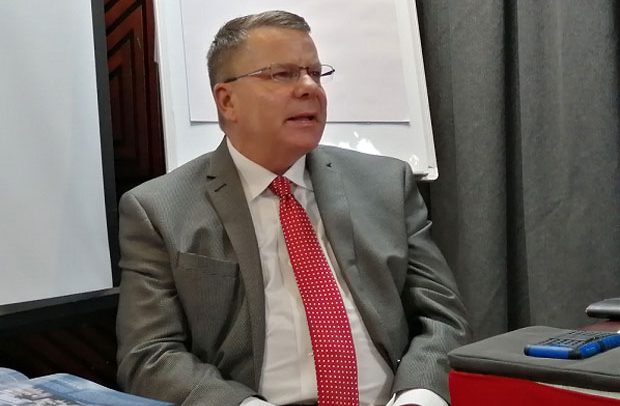Daniel D. Ryan
Atlantic American Partners (AAP), which offers an investment opportunity under the US EB-5 programme, is inviting high-net Ghanaians to invest $500,000 into the programme to gain instant access to the US.
AAP indicated that the investment facilitates the acquisition of a US Green Card by the investor which confers residency rights on him or her.
Managing Director for Emerging Markets (Africa) at Atlantic American Partners (AAP), Daniel D. Ryan, told the media in Accra that Ghanaian investors, who subscribe to the ‘EB-5’ foreign investor programme, would automatically own a limited partnership position in a ‘fund’ portfolio of new, commercial real estate development projects such as luxury residential apartments, high-class hotels and most recently high-quality student housing rental assets in the United States.
He revealed that AAP, through the US Government, would provide a permanent green card after about 4-5 years from initial application (known as the I-829) after job creation and the required waiting period.
“Once all conditions have been met, the initial $500,000 principal investment is returned to the applicant,” Ryan mentioned, adding that to help offset up-front initial costs of a US$45,000 administrative fee to AAP and $20,000 in immigration legal/attorney fees, AAP would pay the applicant two percent annual interest rate or $10,000 per year for five years, among others.
“This diversified approach helps reduce risk and loss of capital.”
He stated that the AAP’s EB-5 foreign investment programme has many benefits including helping investors to move to the US with their spouse and other unmarried family members below the age of 21, within 14-20 months from the initial programme application, and receive what is referred to as a “Temporary Green Card” (I-526 Approval).
They would also have ability to live and work anywhere in the US, travel to and from their homeland without visa, start a business, access high-quality, very low or no-cost public primary and secondary schools and public and private colleges and universities at US resident costs.
By Samuel Boadi


